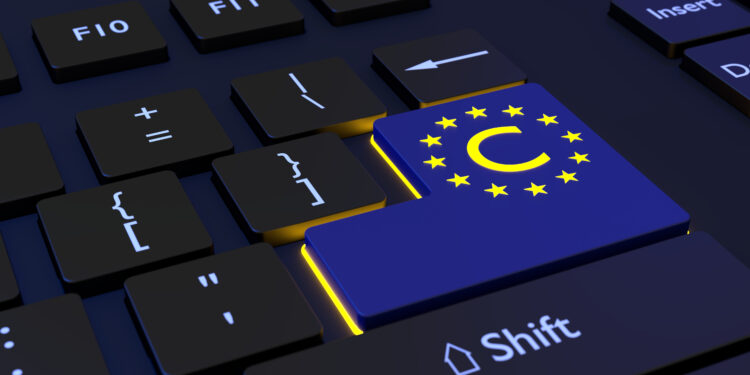[ad_1]
The EU Court docket has clarified that filters shouldn’t be trusted after they can not do their job with satisfactory precision. However their supervision stays weak. The upcoming AI Act affords a chance to deal with this, writes Martin Husovec.
Martin Husovec is an assistant professor of legislation on the London College of Economics.
On Tuesday, the Court docket of Justice of the European Union printed its long-awaited ruling on the constitutionality of filtering to guard authors’ rights on websites like YouTube. In keeping with the Court docket, the automated blocking of the person content material upon add is permissible if it avoids errors.
In 2016, the European Union proposed a brand new Copyright Directive. It launched an obligation to pay authors and different proper holders for user-generated content material on sure platforms. If authors usually are not within the cash, they will demand to filter the content material that infringes their copyright.
Poland determined to problem the duty to filter earlier than the Court docket of Justice of the European Union. It argued that it violated the liberty of expression of customers whose content material might thus be eliminated with out being unlawful. No different member state supported Poland.
The Court docket dominated this week that filtering as such is appropriate with freedom of expression. Nevertheless, it should meet sure situations. Filtering should be capable to “adequately distinguish” when customers’ content material infringes a copyright and when it doesn’t. If a machine can’t try this with ample precision, it shouldn’t be trusted to do it in any respect.
Right this moment, we will already automate some infringements with precision. Particularly these which don’t require evaluation of the context. The much less of the protected content material the person makes use of, the larger the issue for the machines. Machines can nonetheless discover the content material however are unable to legally consider it.
This places strain on algorithms and synthetic intelligence. The hope is that someday machines will be capable to do rather more. This objective of accelerating the effectivity of enforcement in gentle of technological modifications is totally legit.
However will the platforms be sufficiently to correctly check the standard of their algorithmic options? Do we actually depart them unsupervised? The concern is that they’ll merely deploy no matter fits them commercially.
The Court docket now says that filters ought to solely be used the place the know-how is of top quality. However who will choose that it’s? The European legislator has taken its arms off any specifics. The member states are additionally shying away from answering the query.
The Court docket has indicated that, from a European viewpoint, the European legislator has carried out sufficient already. It stated that the directive consists of the fundamental components to guard towards abuse. It’s now as much as the member states to make precision filtering a actuality on the bottom.
However most member states have thus far pointed again to Brussels. They’ve argued that the European guidelines are ample on their very own. In keeping with them, it is sufficient to copy and paste the directive into nationwide legislation and let the home courts resolve any points. This kicks the can down the highway towards residents.
Will this landmark determination change this? In all probability not. The Court docket remained sufficiently imprecise.
The member states ought to, nonetheless, take the ideas of the choice to coronary heart. It’s the obligation of the state that prescribes the blocking to make sure that it doesn’t get out of hand.
What must be carried out is sort of clear. Filters needs to be subjected to testing and auditing. Statistics on the usage of filters and an outline of how they work needs to be made public.
Client associations ought to have the proper to sue platforms for utilizing poorly designed filters. Some authorities ought to have oversight of how the techniques work and situation fines within the occasion of shortcomings.
With out such mechanisms, precision filtering is wishful pondering.
That can be why the European Union is at present discussing the right way to finest regulate the usage of synthetic intelligence. We don’t need to abdicate on the oversight of machines after they determine about our lives.
Nevertheless, copyright filtering on platforms is curiously lacking among the many dangerous functions foreseen by the AI Act. This omission needs to be remedied. The Court docket of Justice simply dominated that filtering earlier than content material goes on-line constitutes a previous restraint, a really severe sort of interference with folks’s freedom of expression.
The Digital Providers Act will supply a fantastic set of safeguards. However they’ll probably work properly solely when the platforms qualify as very massive. For all different platforms utilizing filters to pre-emptively block customers’ content material, solely restricted types of transparency will apply upfront. Most different safeguards kick in solely after the person errors are made.
The EU legislature ought to subsequently think about together with the usage of such add filters within the upcoming AI Act.
This week, the Court docket of Justice of the European Union agreed with the European Court docket of Human Rights on a basic precept. The failures of corporations entrusted by the state to implement the legislation, even when wearing subtle know-how, stay the state’s direct accountability.
Legislatures in Europe shouldn’t look the opposite approach anymore and handle the oversight of filters head-on.
[ad_2]
Source link









